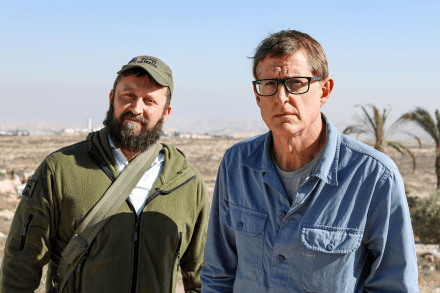What is the West without the Jews?
To the studio! Podcasts, if you ask me, are the one good thing to have come out of the digital revolution. My new one, The Brink, which I present with hulking former Parachute Regiment officer Andrew Fox, has hosted three guests so far: American media supremo Bari Weiss, former Israel defence minister Yoav Gallant and Mossad spymaster Yossi Cohen. What are we? Well, we’re not Rory Stewart and Alastair Campbell. The highlights? Weiss observing that society is not facing a crisis of trust but of trustworthiness: ‘You should not trust something that’s not worthy of your trust.’ Then there was Gallant’s message to the West: ‘We all think war is




















